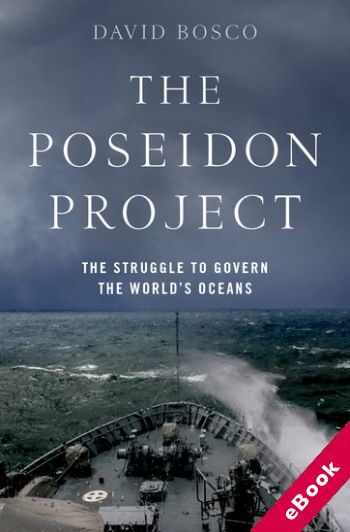
The device(s) you use to access the eBook content must be authorized with an Adobe ID before you download the product otherwise it will fail to register correctly.
For further information see https://www.wildy.com/ebook-formats
Once the order is confirmed an automated e-mail will be sent to you to allow you to download the eBook.
All eBooks are supplied firm sale and cannot be returned. If you believe there is a fault with your eBook then contact us on ebooks@wildy.com and we will help in resolving the issue. This does not affect your statutory rights.
A vibrant exploration of past and present controversies surrounding control of the world's oceans.
In 1609, the Dutch lawyer Hugo Grotius rejected the idea that even powerful rulers could own the oceans. "A ship sailing through the sea," he wrote, "leaves behind it no more legal right than it does a track." A philosophical and legal battle ensued, but Grotius's view ultimately prevailed. To this day, "freedom of the seas" remains an important legal principle and a powerful rhetorical tool.
Yet in recent decades, freedom of the seas has eroded in multiple ways and for a variety of reasons. During the world wars of the 20th century, combatants imposed unprecedented restrictions on maritime commerce, leaving international rules in tatters. National governments have steadily expanded their reach into the oceans. More recently, environmental concerns have led to new international restrictions on high seas fishing. Today's most dangerous maritime disputes-including China's push for control of the South China Sea-are occurring against the backdrop of major changes in the way the world treats the oceans.
As David Bosco shows in The Poseidon Project, the history of humanity's attempt to create rules for the oceans is alive and relevant. Tracing the roots of the law of the sea and the background to current maritime disputes, he shows that building effective ocean rules while preserving maritime freedoms remains a daunting task. Bosco analyzes how fragile international institutions and determined activists are struggling for relevance in a world still dominated by national governments. As maritime tensions develop, The Poseidon Project will serve as an essential guide to the continuing challenge of ocean governance.